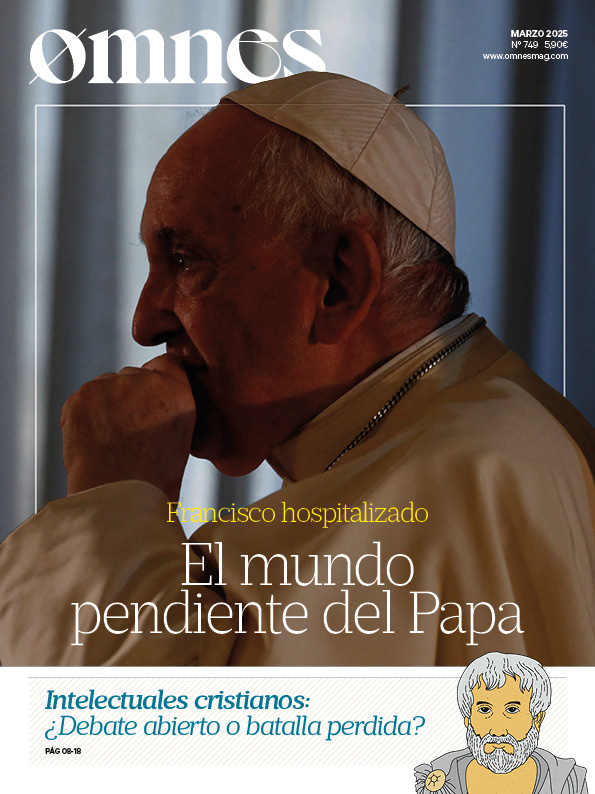The approval of the Law on sexual and reproductive health and the voluntary interruption of pregnancy and the Law for the real and effective equality of trans persons and for the guarantee of the rights of LGTBI persons. has led the bishops who make up the Episcopal Subcommission for the Family and Defense of Life of the Spanish Episcopal Conference to speak out against the attacks on personal dignity and human life contained in these norms.
In fact, the bishops speak of an ideological colonization in the face of which "we want to recall the proper anthropology that shows us that the person is the union of body and soul".
Abortion law
In this regard, the bishops emphasize their outright rejection of the new abortion law which not only protects it but also promulgates abortion as a right and contains such worrying aspects as allowing "abortion for the disabled up to five and a half months, the possibility that 16 and 17 year old girls may have abortions, the possibility that 16 and 17 year old girls may have abortions up to five and a half months of age, the possibility that 16 and 17 year old girls may abortion without parental consent, making it compulsory for doctors who refuse to perform abortions to register as conscientious objectors or eliminating the period of reflection before abortion and information on alternatives to abortion".
Indeed, this new abortion law elevates the elimination of the unborn child to a "legal good" as Pilar Zambrano, professor of Philosophy of Law at the University of California at Berkeley (USA), pointed out for Omnes a few weeks ago. University of Navarra.
The so-called "trans law
Likewise, the Subcommittee has pointed out the total ideologization of the legal norm manifested in the "Law for the real and effective equality of trans persons and for the guarantee of the rights of LGTBI persons" which imposes, in a unilateral manner, the theory queer in the Spanish judicial and health system "arbitrarily establishing and imposing a single anthropological conception".
At this point, the bishops wanted to recall several key points that support the bishops' rejection of the imposition of this law:
- The testimonies of families, mothers, young people and adolescents who have suffered the consequences of this imposition of gender theory to whom the prelates have shown their "support and help"..
- The imposition of "a peculiar and reduced anthropological vision in all areas: education, law, health, labor, the media, culture, sports and leisure", which has increased in recent years from various government agencies.
- The lack of scientific rigor in the elaboration of these laws. As this note points out, "scientific studies agree that more than 70% of the children who ask to change their sex, when they pass adolescence, do not continue asking for the change". In this line, the bishops recall that "the depathologization of transsexuality is identified with favoring a medical intervention, but without medical criteria, but with subjective criteria of the patient. A subjectivization that "forces health personnel to obey the wishes of patients, even if this entails serious risks for the person".
In addition, the new law "denies the possibility of psychosexual treatment and even the need to obtain a diagnosis of people with gender identity disorder, confusing the medical diagnosis with an attempt to annul the personality". Added to this are "the testimonies of people who have undergone reassignment and have not seen their situation resolved. It is also necessary to assess the treatments and explain the after-effects, side effects and complications of these treatments".
The position of the faithful
In addition to listing some of the main objectionable aspects of this norm, the bishops also wanted to outline the attitude of the Christian faithful towards people with gender dysphoria before which "the Christian community and, in particular, pastors must always develop feelings of welcome".
At the same time they have encouraged to "raise our voice strongly and denounce the use of premature and irreversible treatments even more when we are not sure of the existence of a real Gender Dysphoria. The medical actions carried out on minors, after careful reflection, should never be of an irreversible nature".
At the same time, the bishops said that those who suffer from this type of gender dysphoria "are called by Jesus Christ to holiness and to carry out, animated by the Holy Spirit, the will of God in their lives, uniting to the sacrifice of the cross the sufferings and difficulties they may experience because of their condition" and have appealed to the respect of "freedom of conscience and science to all professionals in the various areas of social life without conditioning the professional performance in freedom" in the face of an indoctrination that conditions "the professional performance in the educational field, health, public service, judiciary, culture, media".
The imposition of laws that threaten human life at different stages led the Spanish Episcopal Conference to publish, last March, an doctrinal note on conscientious objection in which they seek to offer criteria and principles in the face of the problems that laws such as euthanasia or the new law on abortion pose for Catholics.








